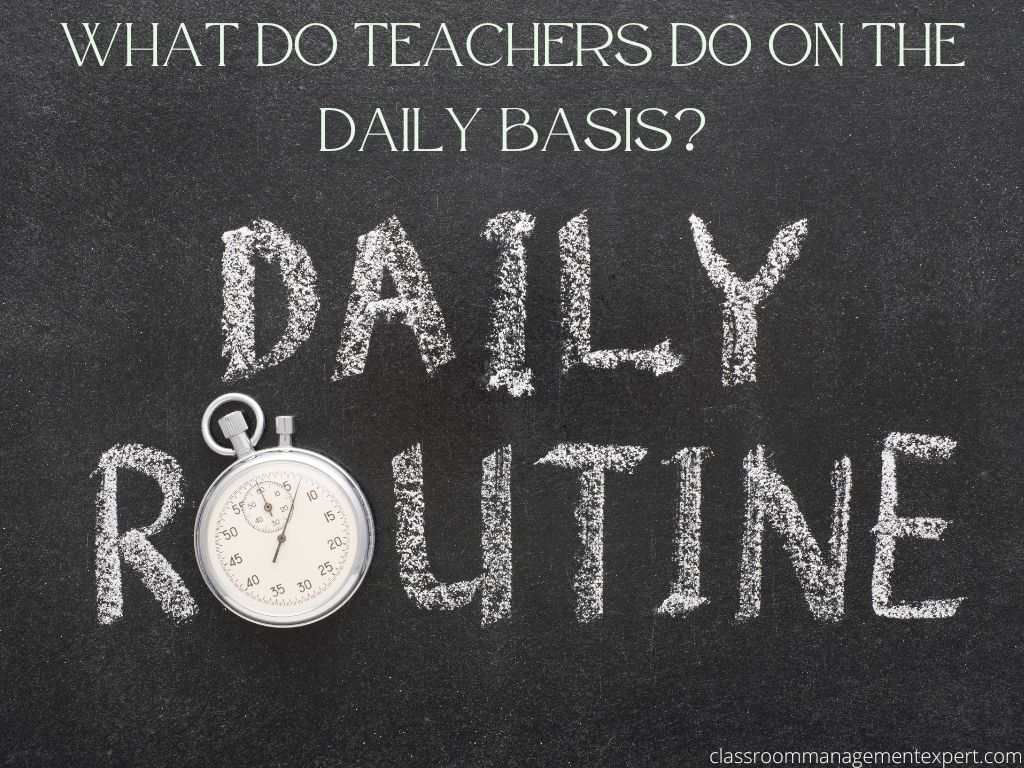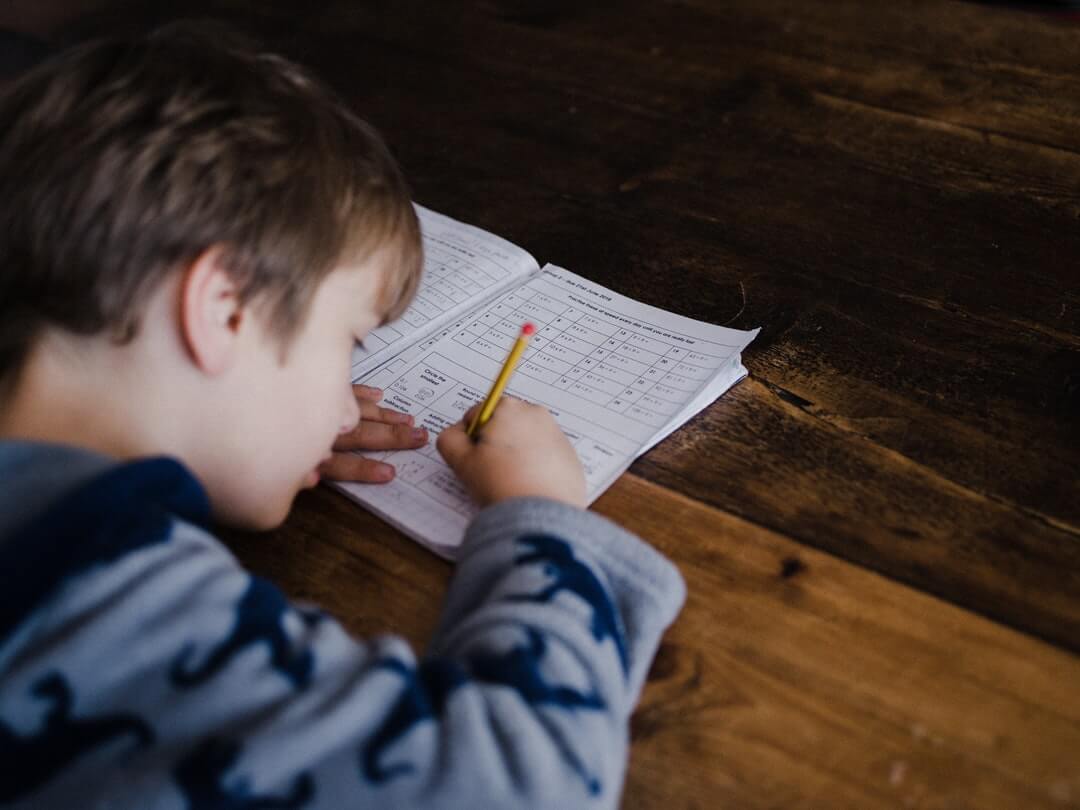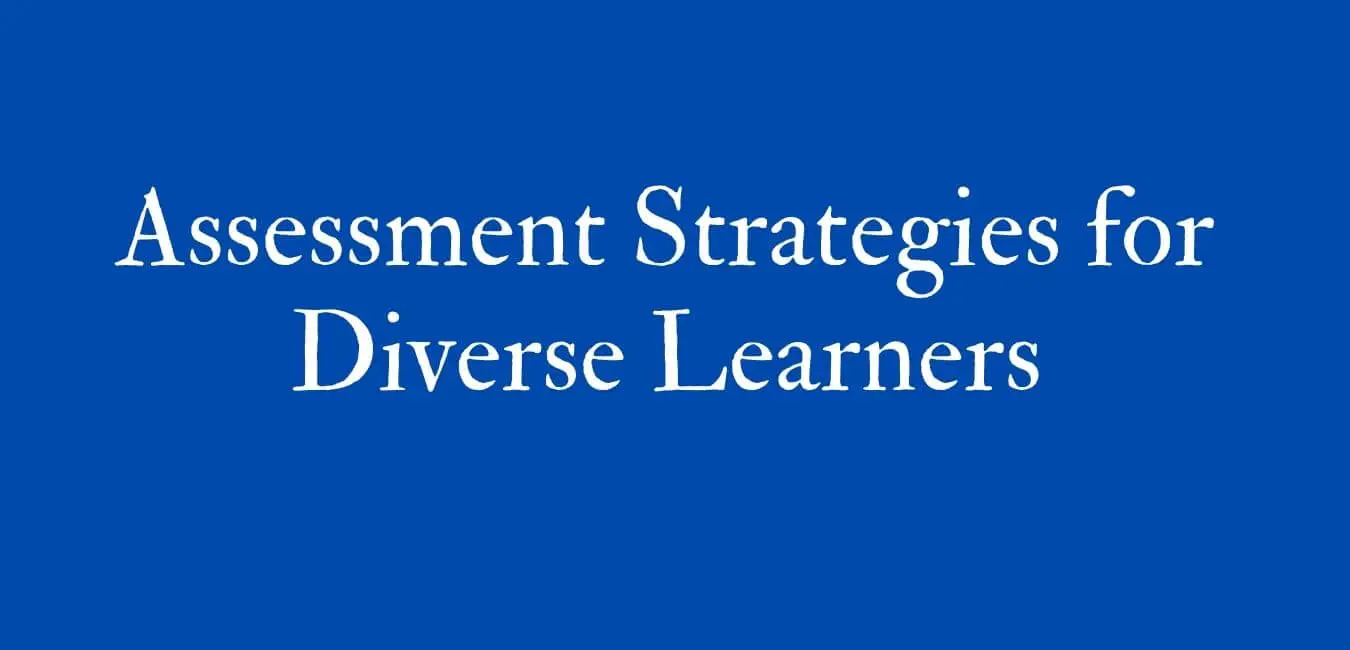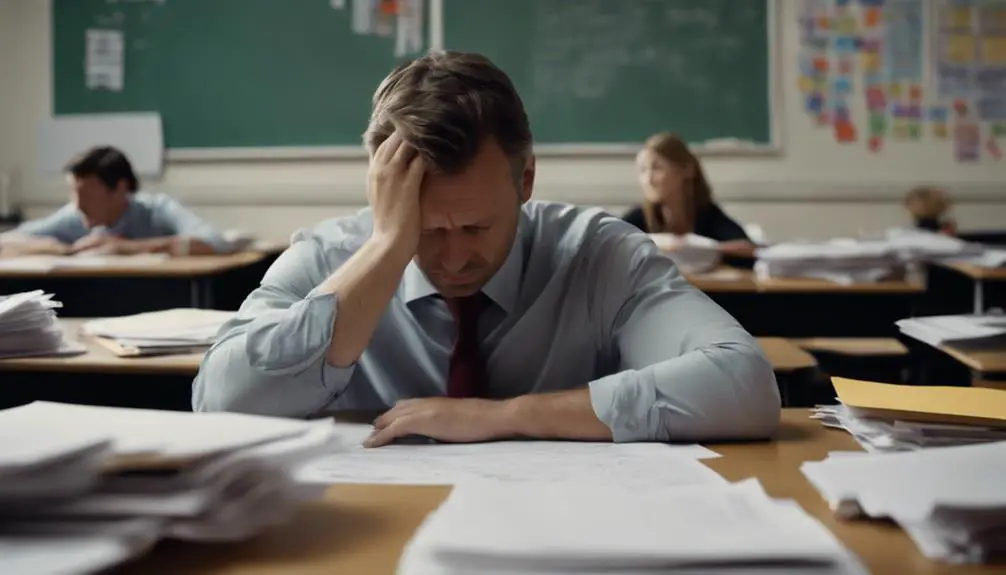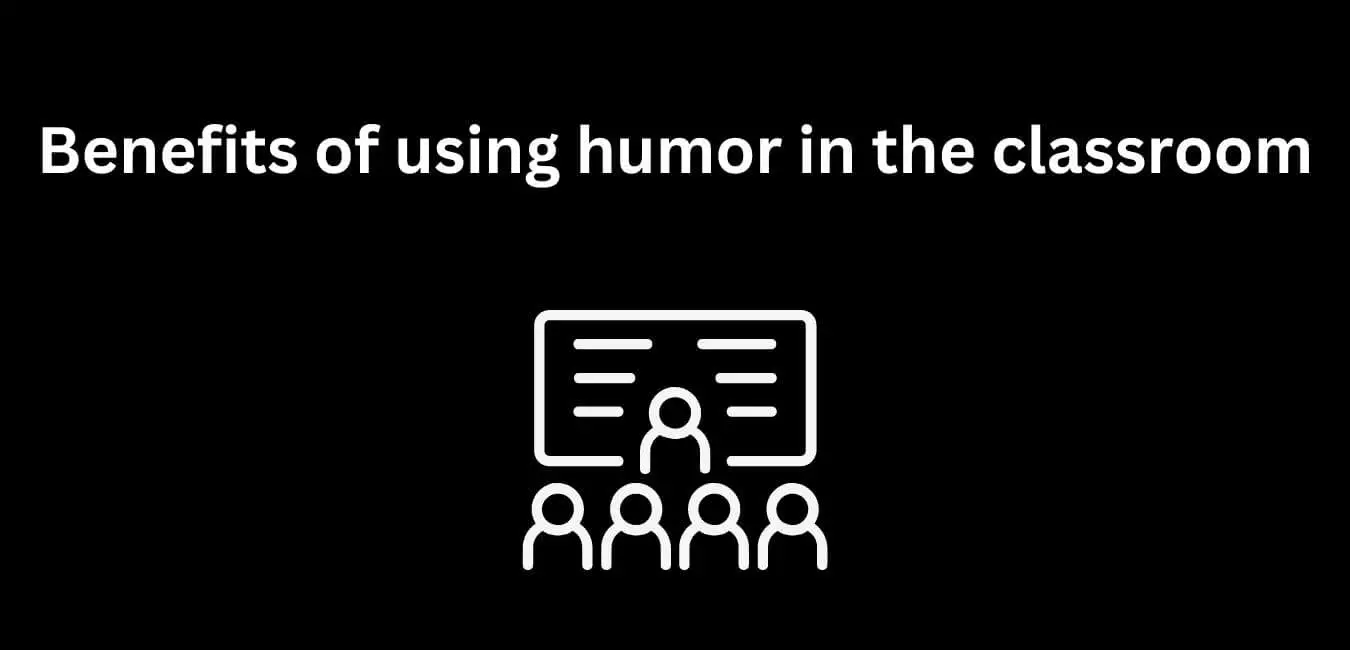Teachers have a lot of responsibility. They are responsible for the education of their students and for preparing them for their future. Teachers must also be able to work with different types of people, which can be difficult at times. So, what do teachers do on a daily basis?
Moreover, teachers are responsible for teaching a class, preparing lesson plans, grading assignments, meeting with parents, and much more. While each day may be different, there are some common duties that teachers typically perform on a daily basis.
Stay with me and let’s look at some of the common activities teachers do on a daily basis.
25 Things Teachers Do on a Daily Basis
Teachers are some of the most important people in our society. They play a vital role in shaping the minds of our youth and preparing them for the future. Here are 25 things teachers do on a daily basis that you may not be aware of:
1. Teachers plan and prepare lessons on a daily basis.
Teachers plan and prepare lessons on a daily basis. This allows them to be organized and efficient in their teaching. It also allows them to be responsive to the needs of their students.
2. Teachers teach lessons.
Teachers teach lessons on a daily basis in order to help their students learn the material. They typically start with a lesson plan and then adapt it to fit the needs of their students. In addition to teaching lessons, teachers also grade papers, prepare for tests, and meet with parents.
3. Teachers give assignments and homework.
Teachers give assignments and homework to help students learn and practice what they are being taught in class. Homework can be used to reinforce what was learned in class or it can be used to introduce new material.
By giving assignments and homework, teachers can ensure that students are learning the material and progressing in their understanding of it.
4. Hold meetings with parents, guardians, and students.
Teachers hold meetings with parents, guardians, and students on a daily basis. They discuss the progress of the students and the areas where they need improvement. They also set goals for the students and plan how to achieve them.
5. Attend school events.
Teachers play an important role in school events. They help plan and organize the event and make sure that everything runs smoothly. They also attend the event to support the students and to show their interest in the school.
6. Participate in professional development opportunities.
Teachers are always looking for ways to improve their skills and abilities, and one way they can do this is by participating in professional development opportunities. These can include attending conferences, workshops, and courses offered by professional organizations or educational institutions.
By taking advantage of these opportunities, teachers can learn new techniques and strategies, keep up with current trends in education, and network with other professionals.
7. Serve on committees.
School teachers often serve on committees, which can be a great way to get involved in the decision-making process at your school. By serving on a committee, you can help shape policies and procedures that affect the day-to-day operations of the school. This is a great way to use your expertise to make a positive impact on your school community.
8. Grade papers and tests.
Teachers grade papers and tests in order to assess student learning. This process usually involves providing feedback to students on their performance. Grading can be done in a number of ways, but most commonly involves assigning a letter grade or percentage score.
9. Write report cards and progress reports.
Teachers write report cards and progress reports to communicate a student’s academic progress and performance to parents and guardians. These documents typically include grades, comments on specific areas of strength and weakness, and recommendations for improvement. Progress reports are usually sent home mid-way through a grading period, while report cards are generally sent at the end.
10. Keep up-to-date with current educational research.
Teachers play an important role in keeping up-to-date with current educational research. By doing so, they are able to provide their students with the most up-to-date information and resources available. This allows students to be better prepared for their future studies and careers.
11. Maintain student records.
Teachers play an important role in maintaining student records. They keep track of students’ progress and ensure that all required information is accurately recorded. This allows parents and administrators to monitor student progress and identify areas where additional support may be needed.
12. Monitor students’ attendance and tardiness.
Teachers play an important role in ensuring that students attend school regularly and arrive on time. They may do this by monitoring attendance patterns and tardiness and intervening when necessary. This can help to ensure that students have the opportunity to learn and succeed in school.
13. In-school suspension or lunch detention supervision
In-school suspension or lunch detention supervision is a process whereby a student who has been accused of breaking school rules is temporarily removed from the general student population and placed in a separate, supervised area within the school. This type of discipline is typically used as a last resort after other methods, such as verbal warnings or detention, have failed to change the student’s behavior.
14. Observe other teachers in action.
Many teachers who observe other teachers in action can learn a great deal about different teaching methods and strategies. By watching other teachers, they can see what works well and what doesn’t work so well. This can help them to improve their own teaching skills.
15. Take on additional administrative roles.
As teachers take on additional administrative roles, they often have to juggle more responsibilities and may have less time for teaching. This can be a challenge, but it can also lead to new opportunities for professional development and growth. In addition, taking on additional roles can help teachers build their leadership skills and knowledge.
16. Teachers chaperone field trips or dances.
Teachers chaperone field trips or dances to ensure that students are behaving appropriately and not causing any trouble. This allows students to enjoy the event while also staying safe. Chaperoning can be a fun way for teachers to get involved in their students’ lives outside of the classroom.
17. Teachers proctor exams.
Teachers proctor exams in order to ensure that students are not cheating. This is done by having the teacher watch the students as they take the exam. If the teacher sees anything suspicious, they will investigate.
18. Edit the school newspaper or yearbook
Teachers play an important role in school newspapers and yearbooks. They help students select articles and photos, write headlines and captions, and edit the final product. Teachers also advise student editors on issues such as grammar, punctuation, and spelling.
19. Serve as a mentor to new teachers.
Teachers play an important role in the development of new teachers. By serving as a mentor, they can help new teachers learn the ropes and become successful in their own right.
In addition to providing guidance and support, mentors can also offer insight and advice based on their own experiences in the classroom. By serving as a mentor, teachers can help ensure that new teachers are well-prepared to meet the challenges of the teaching profession.
20. Assist with the implementation of new technology in the classroom.
Teachers are key in helping to implement new technology in the classroom. They help to train students on how to use new devices and software and can provide feedback on how well the technology is working in the classroom setting. By working with teachers, new technology can be successfully integrated into the classroom and improve the learning experience for all students.
21. Create graphic organizers or PowerPoints for lessons.
Teachers create graphic organizers or PowerPoints to help students learn and remember information. By using visuals, students can see how information is related and better understand the concepts being taught. Graphic organizers also help teachers organize their thoughts and ideas before presenting a lesson.
22. Research best practices for teaching specific content areas
There is a wealth of research available on best practices for teaching specific content areas. Teachers can consult this research to learn about effective instructional strategies, assessment methods, and ways to engage students in learning. By staying up to date on the latest research, teachers can ensure that they are using the most effective methods to help their students succeed.
23. Develop individualized education plans (IEPs) for special-needs students.
Teachers develop individualized education plans (IEPs) for special-needs students. This ensures that each student receives the special education, customized instruction, and support they need to succeed. IEPs help teachers track progress and adjust their teaching methods as needed.
24. Collaborate with other teachers to differentiate instruction.
Differentiating instruction is important for meeting the needs of all students in a classroom. Teachers can collaborate with each other to create differentiated lessons and activities. This can help ensure that all students are able to learn and succeed in the classroom.
25. Attend meetings with management and administration to improve the academic curriculum.
Teachers often attend meetings with management and administration in order to improve the academic curriculum. This helps ensure that the curriculum is up-to-date and meets the needs of students. In addition, these meetings can help identify areas where teachers may need additional training.
Conclusion
In conclusion, teachers have a lot of duties and responsibilities on a daily basis. They are in charge of molding young minds and helping students reach their potential. They work long hours and are constantly preparing for classes and grading papers. Teaching is a demanding profession, but it is also very rewarding. Teachers make a difference in the lives of their students every day.
Furthermore, teachers are responsible for preparing lessons, grading papers, meeting with parents, and much more. They also have to deal with disruptive students and parents. Despite the challenges that they face, teachers continue to have a positive impact on the lives of their students. Thanks for your time!

